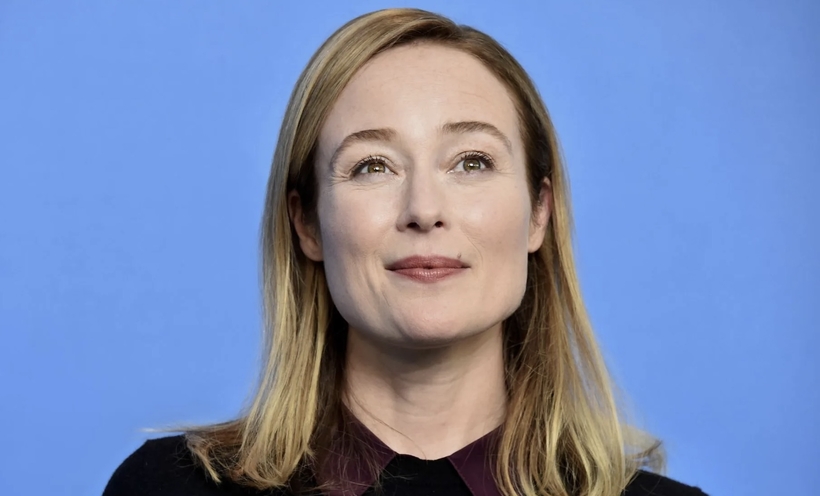King Theseus of Athens is roaming around Zeus knows where and presumed dead. And suddenly, his hitherto irreproachable, foreign-born wife Phèdre, granddaughter of the Sun, catches fire for her stepson Hippolytus. It’s a role for a tigress, yet here is Jennifer Ehle—an artist who has rehabilitated the cliché “luminous” time and time again—headlining the Red Bull Theater’s staged reading of Racine’s masterpiece at the Alliance Française in Manhattan. There’s just one performance, on February 20. Happily, it will stream live and then, for a limited time, on demand.
Ehle got her first big break in 1995 in the BBC miniseries of Jane Austen’s Pride and Prejudice: she played Elizabeth Bennet opposite the Mr. Darcy of Colin Firth, another newcomer. Of Lizzy’s avatars in plays and movies, has any been truer or finer? Ehle brought to Austen’s Human Comedy a spice and freshness all her own, even as her twinkling eye, warm heart, and playful intelligence called to mind the likewise luminous Rosemary Harris, who not so incidentally is her mother.

Career highlights for Ehle since then have included triumphs on Broadway in Tom Stoppard’s The Real Thing and The Coast of Utopia (she won Tonys for both) and the J. T. Rogers political thriller Oslo. Onscreen as an abuse victim of Harvey Weinstein’s in the current She Said, Ehle struck Justin Chang of NPR as “quietly heart-breaking.” The missing piece in her performance history is the snake-bit pilot of Game of Thrones, which never aired. After that single episode as Catelyn Stark, Ehle walked away to be a mother to her newborn daughter.
The most telling antecedent for Ehle’s Phèdre, though, might be her Lady Macbeth opposite Liev Schreiber in Central Park the summer of 2006. “Seriously ravishing,” Ben Brantley called her appearance in The New York Times, adding that both co-stars speak Shakespeare’s verse “with a natural grace and clarity.” That said, Brantley faulted the Moisés Kaufman production as too manicured for the actors’ good. “Blood flows regularly,” he wrote, “but as if dispensed from silver taps. In the end neither Mr. Schreiber nor Ms. Ehle seems fully to inhabit the darkness of their characters, despite—or maybe because of—the fastidiousness of their interpretations.”
In Phèdre, fastidiousness is of the essence. Lady Macbeth takes to murder like a bird of prey and is last seen sleepwalking, washing guilty hands in water that is not there. Phèdre has her husband’s peace of mind, her stepson’s life, and other roadkill on her conscience. Yet she’s as much the victim of her wildfire passions as they are, and she dies by her own hand, reclaiming her integrity and setting the record straight. Call her the tragedy’s anti-villainess.
Phèdre streams live from the FIAF Florence Gould Hall, in New York, on February 20 at 7:30 P.M. and on demand from February 21 to 26
Matthew Gurewitsch writes about opera and classical music for AIR MAIL.He lives in Hawaii

